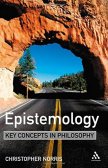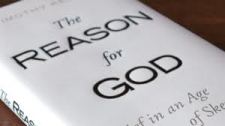Chapter 3: ‘Fog Over Channel, Continent Isolated’: Epistemology in the ‘Two Traditions’ – Section III
Post-Kantian developments, like non-Euclidean geometries and a relativistic conception of space-time, had a lot to do with the analytic turn against a priori truth-claims-since Kant treated Euclidean geometry and Newtonian physics as a priori-“a cautionary instance of what goes wrong when notions of intuitive self-evidence or apodictic warrant are accorded such privileged treatment.” This caution was transferred to Husserl’s phenomenology, with its “pure eidetic inspection”. However, “progress in these fields has most often come about through a joint application of intuitive, conceptual and scientifically informed modes of reflective understanding.” So a veto on phenomenology would miss much that is involved in progress.
To hold that there are two distinct traditions based on location, which only mingle when philosophers of each location spend time in each other’s location, is to “obscure the existence of deeper continuity”.
“Besides, it is now acknowledged-even by devoted students of Frege like Michael Dummett-that Husserlian transcendental phenomenology had a genuine claim to logical rigour and that its attempts to explicate the a priori structures and modalities of human knowledge and experience cannot rightfully be put down to any kind of psychologistic aberration.” What sets Husserl apart from the ‘analytic’ tradition (Norris sees this is also the direction in which analytic epistemology is headed) is wanting to account for both aspects of knowledge:
Note: I may have got it wrong–structure and genesis may both belong in the ‘epistemology’ level (“context of discovery”). See next section for (possible) correction.
1. Structure (ontology): “‘absolute ideal objectivity’ that distinguishes the truths of mathematics or logic” ‘context of justification’-truth, knowledge, epistemic warrant
2. Genesis (epistemology): “process of reasoning by which such truths are arrived at” ‘context of discovery’-“the genesis of theories or the history of scientific thought”
[(‘1’ and ‘2’ seem like they could be titled 1: truth; 2: belief/knowledge/varying degrees of faith, excluding blind faith; 1: “this is what is true” and, 2: “this is what we believe is true, and how we came to believe it” – when we come to believe what is true, then 1 and 2 come together.) (All we need to bring 1 and 2 together is a standard for distinguishing true from false-and minds who use the standard.) The only being who doesn’t need to “use” the standard is an omniscient being, who does not “come to believe”-but eternally knows.]
This line of thought (before commentary inside brackets) links Kant and Husserl “in the quest for some means of articulating truth with knowledge, or some way to overcome the problem…of how one can reconcile a realist (or objectivist) conception of truth with an epistemology that brings such truth within the compass of human understanding.” That some have given up on such reconciliation suggests they have something to learn from Husserl’s phenomenology.
There is understandable resistance to abandoning the distinction between 1 and 2 by “equating ‘truth’ with the currency of belief at any given time and hence with certain dominant forms of social, political or ideological interest.” Ultimate source: Nietzsche (“totally rejected the values of reason, truth and objectivity”). Proximate source: Foucault’s “ultra-skeptical ‘archaeologies’ of the natural and human sciences.” Analogue: “skeptically inclined branches of post-analytic philosophy where this particular strain of ‘continental’ influence is often conjoined with a pragmatist conception of truth as what’s ‘good in the way of belief’ and astrong-descriptivist approach to epistemological issues.” Hence the view that we are stuck with ‘2’ and have no access to ‘1’-that ‘1’ is not possible. After Quine and Kuhn, analytic philosophy, unlike the post-Kantian continental tradition-“lacked…any adequate account of those various knowledge-constitutive modes of perceptual, cognitive and theoretical activity whose role had been so sharply devalued by adherents to the mainstream analytic line,” ’cause they took the “self” (knower) out of the picture, which is reeeally ironic (provided I even understand what’s going on), finding themselves stuck with ‘2’.
Re-enter John McDowell. He and others see “Kantian epistemology-or at least certain aspects of it-as pointing a way beyond the unresolved problems with logical empiricism, notably its failure to provide any adequate normative account of knowledge.” Repasting from section I:
John McDowell (and other analytic revisionists) “recommend a return to certain Kantian insights, albeit through a highly selective (‘naturalized’ or ‘detranscendentalized’) reading of Kant.”
These ‘revaluations’ “still inherit something of the logical-empiricist prejudice against explaining both “structure” and “genesis” of knowledge, both “process of arrival” and standards for being able to say “we’ve arrived”. It was for want of these things that analytic philosophy “gave way” to “Quinean ‘ontological relativity’, Kuhnian paradigm-relativism, Richard Rorty’s far-out linguistic-constructivist creed, and the ‘strong’ programme in sociology of knowledge.”
Norris says we need to recognize “that these problems have arisen very largely in consequence of the artificial divide between developments in post-Kantian ‘continental’ and Anglophone ‘analytic’ thought.”
“One could instance Husserl’s great book The Crisis of European Sciences and Transcendental Phenomenologyas the first to diagnose this widening gulf.” “…a long-range historical perspective going back to various nineteenth century debates about the role of scientific knowledge and enlightened rationality vis-à-vis the claims of hermeneutic understanding or immersion in the ‘lifeworld’ of humanly intelligible values and beliefs.” Whatever THAT means. Though Husserl ‘vacillated’ between these two priorities, he “took a stance squarely opposed to any form of irrationalist or counter-Enlightenment reaction.”
The same could be said “of those Frankfurt-School critical theorists (such as Jurgen Habermas) who defend the ‘unfinished project of modernity’ against its current detractors by examining the various orders of truth-claim-or the different spheres of validity-that have separated out within the discourse of the physical, social and human sciences.” Habermas conserved the critical/progressive impulses of Enlightenment thought, “deriving those emancipatory values from a theory of ‘communicative action’ based on the idea of free and equal exchange between all parties with access to the relevant (more or less specialized) information sources. In which case philosophy can take on board the whole range of anti-foundationalist arguments brought against more traditional forms of epistemology by proponents of the present-day ‘linguistic turn’ and yet maintain a principled commitment to the standing possibility of truth and progress in the scientific, ethical and socio-political spheres. This approach abandons the old subject-centred epistemological paradigm, but does so-crucially-without yielding ground to the kinds of cultural-relativist thinking that have often been advanced by followers of Wittgenstein or by those who appeal to ‘language games’ or ‘forms of life’ as the furthest we can get in the quest for validating grounds, reasons or principles.” Can learn from this as from Husserl.
So, it cannot be said that cultural relativism is a disease spread by the post-Kantian ‘continental’ tradition, as 1) the most powerful arguments against it are from continental philosophers, 2) a limited number of continental philosophers attempted to spread it [Foucault, Lyotard’s “sweeping postmodernist pronouncements about the end of ‘grand narratives’ such as that of scientific truth at the end of enquiry”, Heidegger’s “sweeping diagnosis of modern techno-science as the predestined outcome of western (post-Hellenic) metaphysics and its drive to dominate nature and thought through an epochal forgetfulness of Being”] and 3) it is spread by some in recent Anglophone epistemology and philosophy of science (Rorty’s and others’ improbable attempt “to enlist Heidegger’s depth-hermeneutic approach in the service of a highly selective reading that tallies well enough with a homegrown pragmatist outlook”; similarities between “‘strong’ sociologists of knowledge and hermeneutic thinkers in the Heidegger-to-Gadamer line of descent”), 4) one must “take full account of its sources in Wittgenstein, Kuhn, American pragmatism, and other influences nearer home.” Home…hmm.
I wonder why Heidegger isn’t discussed more. Maybe he will be. Also wonder why “hermeneutics” isn’t discussed more.
*****
This perked up my ears:
1. Truth is more important than you think.
v4-5 freedom in Christ because of truth of the Gospel (truth will set you free) John 8
Foucault-“truth is a thing of this world, it is produced only by multiple forms of constraint, and that includes the regular effects of power” – truth claims are power plays
–disciple of Nietzsche (hermeneutics of suspicion) (philosophical squinting) (motive?)
–same thing Jesus says of Pharisees-your truth claims are power plays
But, if you conclude “all” truth claims are power plays, you’re wrong. C.S. Lewis in “The Abolition of Man”–
“You cannot go on ‘seeing through’ things forever” – if you say “all truth claims are power plays” – you are saying ‘that’ truth claim is just a power play (not true)
It’s not the truth claim (the “fundamental”)-it’s what’s “in” the truth claim (the “fundamental”)-that leads or does not lead to oppression.
Fundamental truth claim: grace. If you’re out of touch with that reality/truth-no freedom (truth will set you free). Everything else is “real” slavery/addiction to whatever else it is you build your identity on.
http://ichthus.yuku.com/reply/323/t/RFG-3-Christianity-Is-a-Straitjacket.html#reply-323
*****
Oddly–I used the words “grand narrative” in my paper before I even knew Lyotard, or his phrase grand/meta narrative, even existed. But–it still works, either way you take it, I think.
http://en.wikipedia.org/wiki/Metanarrative
http://en.wikipedia.org/wiki/Jean-Fran%C3%A7ois_Lyotard









